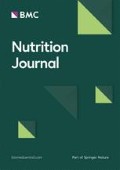Is this enough for your competent? doctor and competent? hospital to get this prescribed for stroke survivors in the next week? NO? WHY NOT? Do not do this unless prescribed by your doctor.
The effects of curcumin-piperine supplementation on inflammatory, oxidative stress and metabolic indices in patients with ischemic stroke in the rehabilitation phase: a randomized controlled trial
Abstract
Background
Stroke is a leading cause of death worldwide, which is associated with a heavy economic and social burden. The purpose of this study was to investigate the effects of supplementation with curcumin-piperine combination in patients with ischemic stroke in the rehabilitation stage.
Methods
In this randomized controlled trial, 66 patients with stroke were randomized into two groups receiving curcumin-piperine tablets (500 mg curcumin + 5 mg piperine) and matched placebo tablets for 12 weeks. High-sensitivity C-reactive protein (hs-CRP), carotid intima-media thickness (CIMT), thrombosis, total antioxidant capacity (TAC), lipid profile, anthropometric indices, blood pressure, and quality of life were assessed before and after the intervention. Statistical data analysis was done using SPSS22 software.
Results
A total of 56 patients with a mean age of 59.80 ± 4.25 years completed the trial. Based on ANCOVA test, adjusted for baseline values, curcumin-piperine supplementation for 12 weeks resulted in significant reductions in serum levels of hs-CRP (p = 0.026), total cholesterol (TC) (p = 0.009), triglycerides (TG) (p = 0.001), CIMT (p = 0.002), weight (P = 0.001), waist circumference (p = 0.024), and systolic and diastolic blood pressure (p < 0.001), and a significant increase in TAC (p < 0.001) in comparison to the placebo. Pain score significantly increased in both groups; however, its increase was significantly higher in the placebo group compared with the intervention group (p = 0.007). No significant changes were observed between the two groups in terms of serum fibrinogen, low-density lipoprotein (LDL), high-density lipoprotein (HDL), and quality of life indices.
Conclusion
Curcumin-piperine supplementation had beneficial effects on CIMT, serum hs-CRP, TC, TG, TAC, and systolic and diastolic blood pressure in patients with ischemic stroke in the rehabilitation stage.

No comments:
Post a Comment